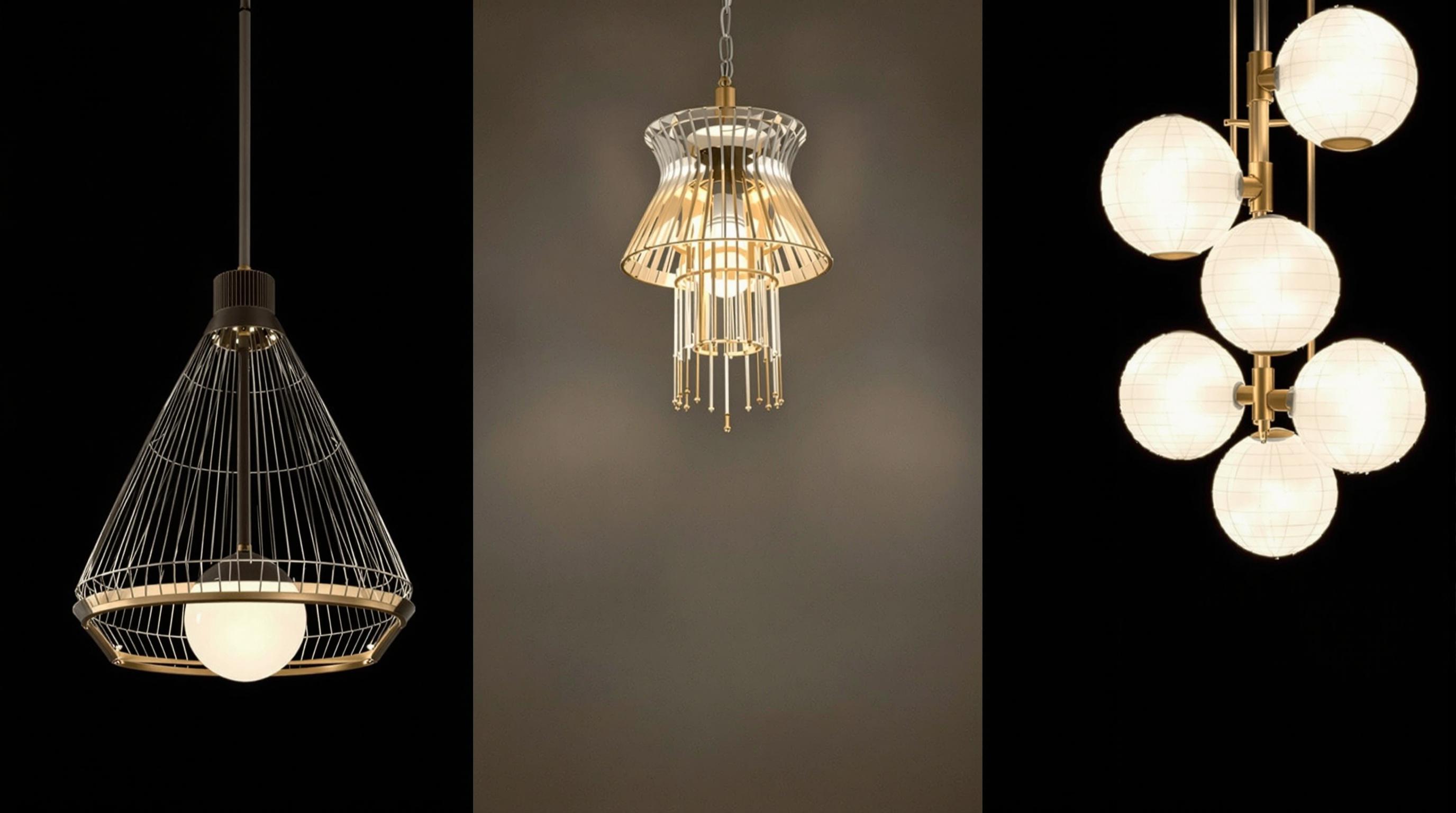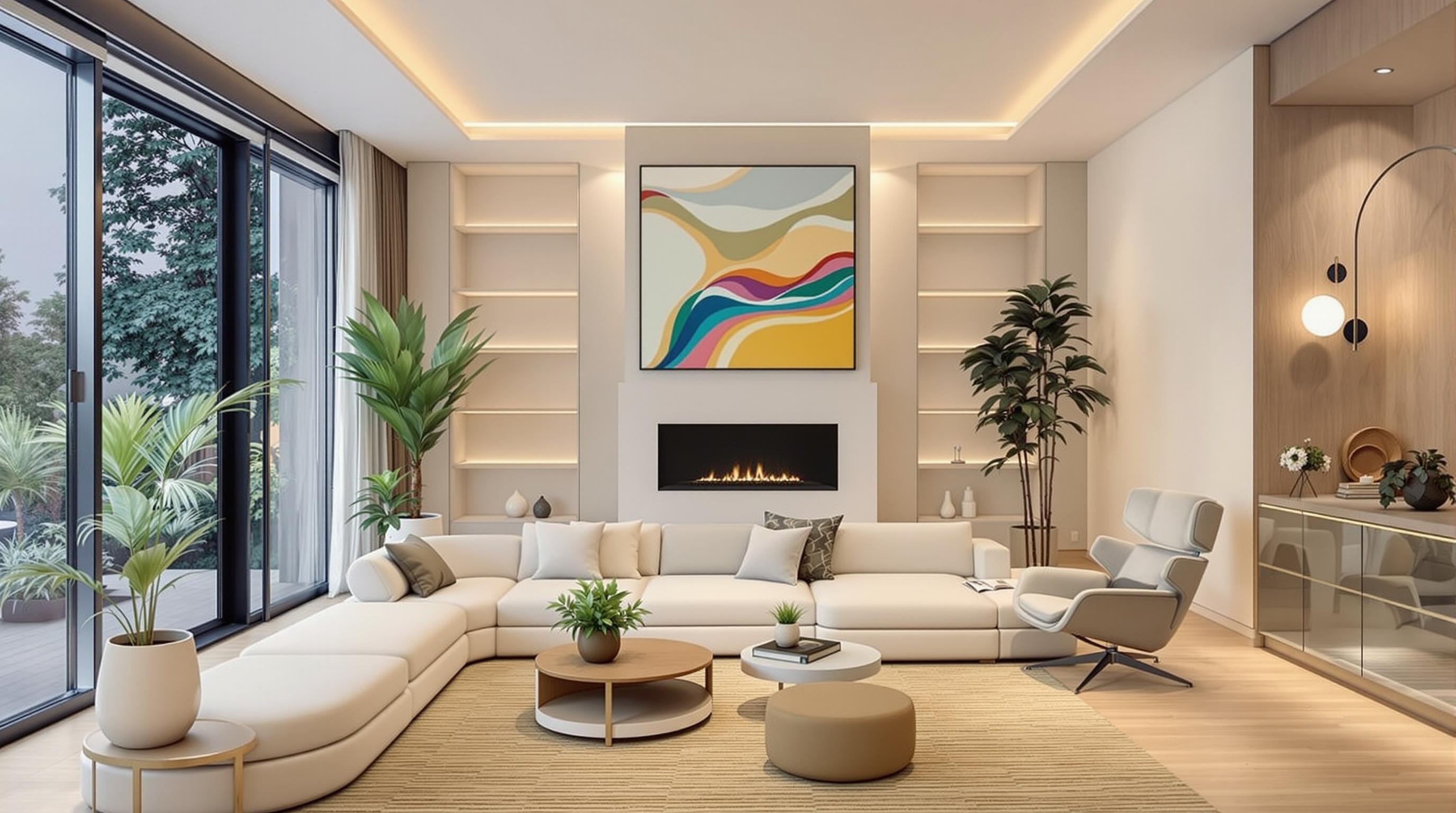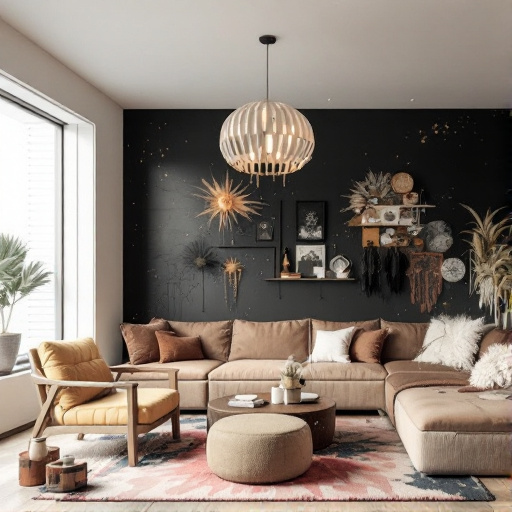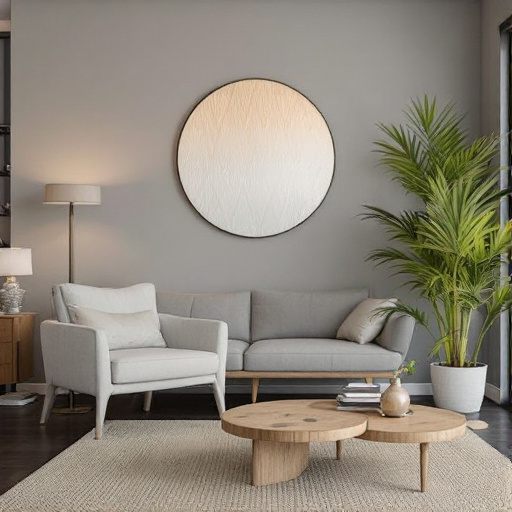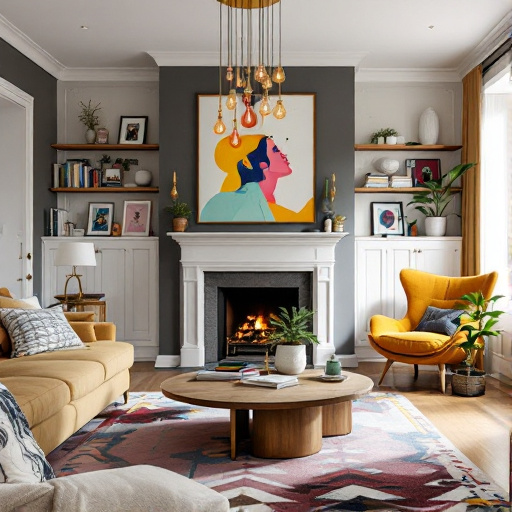Featured Articles
- 8 Innovative Home Decor Trends Shaping Sustainable Luxury Living in 2024
- "Beyond Minimalism: Embracing the Chaos With Maximalist Decor in Modern Homes"
- "Feng Shui Meets Minimalism: The Surprising Blend That's Transforming Modern Home Spaces"
- Forgotten Corners: How Nooks and Crannies Are Revolutionizing Modern Home Decor Trends
- Reviving the Past: How Vintage Office Decor is Making a Comeback in Modern Homes
"Feng Shui Meets Minimalism: The Surprising Blend That's Transforming Modern Home Spaces"
"Feng Shui Meets Minimalism: The Surprising Blend That's Transforming Modern Home Spaces"
Feng Shui and minimalism, two seemingly disparate design philosophies, are converging to create inviting, calming, and more functional living spaces. This article explores how these principles are reshaping modern home aesthetics, providing tips on how to incorporate them into your own environment while sharing insights, stories, and even a bit of humor along the way.
The Dance of Energy and Space
The essence of Feng Shui lies in harmonizing the flow of Chi, or life energy, within a space. This ancient Chinese practice emphasizes balance, arrangement, and intention, encouraging positive energy and well-being. A recent survey by the American Society of Interior Designers found that “64% of respondents believe the arrangement of their homes impacts their mood.” In contrast, minimalism requires simplicity and intentionality through decluttering and functional decor. Imagine living in a space where every item holds purpose, accentuating the flow of energy—a true marriage of Feng Shui and minimalism.
A Match Made in Design Heaven
So why are these two philosophies merging? Essentially, they address similar challenges in today’s fast-paced world. As more people embrace the concept of intentional living, the art of Feng Shui complements minimalism perfectly. An inspiring case study comes from a young couple in San Francisco, who transformed their chaotic one-bedroom apartment into a serene oasis using both principles.
Creating a Calm Oasis
Let’s consider John and Lisa, a tech-savvy couple who, after years of accumulating stuff, felt overwhelmed by their clutter. They began their journey by studying Feng Shui principles. They learned that the energy flow in their cramped apartment was stifled by a mountain of extraneous items—old gadgets, clothes with tags still attached, and unfulfilled aspirations buried in cardboard boxes. With a focus on minimalism, they then approached their space with beginner's Feng Shui advice, ultimately finding a rejuvenating combination.
Benefits of This Harmonious Blend
Experts agree that the fusion of Feng Shui and minimalism leads to improved mental health, reduced stress, and even enhanced productivity. A study conducted by the National Institutes of Health found that clutter can increase cortisol levels, and in a world where mental well-being is paramount, creating calm environments clearly matters.
Striking the perfect balance isn’t just good for your headspace; it can also elevate your lifestyle. By removing unnecessary distractions and fostering an area conducive to relaxation, your home becomes a sanctuary. Participants in a 2021 workshop on decluttering reported an impressive 70% increase in feelings of peace and positivity post-session.
Simple Steps to Integrate Feng Shui and Minimalism
If you’re ready to embrace this transformative design duo, consider the following straightforward tips:
- Declutter with Purpose: Analyze each item in your space, asking whether it sparks joy (a nod to Marie Kondo) and if it enhances the Chi flow.
- Mindful Arrangement: Place furniture and decor in a way that promotes easy movement and visibility. For instance, avoid blocking pathways to allow Chi to circulate freely.
- Utilize Natural Elements: Incorporate wood, plants, and light to connect with nature—an important aspect of both philosophies. Biophilic design, which encourages our connection to the natural world, has been linked to reduced stress and increased focus.
Success Stories from the Field
To bring this to life, let's delve deeper into the stories of individuals who’ve embraced this lifestyle change. Consider Rachel, a 28-year-old freelance graphic designer based in Austin. Overwhelmed by a chaotic work-from-home setup, she decided to revamp her home office space. By removing all distractions and employing Feng Shui principles like the “command position” (placing her desk in a position to see the entrance), Rachel reaped the benefits. She reported increased productivity and reduced anxiety, affirming the positive impact of a thoughtfully organized and energized space.
Bridging Tradition and Modern Life
While minimalism focuses on living with less, Feng Shui centers on the art of arrangement, and together, they bridge the gap between tradition and modern life. Both philosophies remind us that less is often more, especially when it comes to cultivating inner peace in our daily lives.
Humor in Simplicity
Let’s not forget, there’s a humorous side to this journey as well. You know that feeling when you open a closet, and it resembles a scene from a disaster movie? Feng Shui, paired with minimalism, can turn your home from “Hoarders: Buried Alive” to a peaceful retreat. After all, having only the essentials can help you avoid the dreaded “overstuffed closet syndrome.” Take it from someone who spent countless hours fighting an epic battle with an unyielding sock drawer!
Feng Shui Myths Debunked
Even as we embrace this combination, it’s crucial to address some myths associated with Feng Shui. Many believe it requires an extensive understanding of esoteric principles or investment in pricey consultations. However, anyone can start small—especially when you pair it with minimalism. Focus on creating clear spaces and analyze how items make you feel. If you can’t enjoy your reading nook because of all the other stuff around, it’s time for a good old-fashioned purge!
The Role of Color in Feng Shui and Minimalism
Color can significantly impact our Feng Shui and minimalist endeavors. The Feng Shui color wheel suggests specific hues for different areas of your home, such as calming blues for bedrooms and vibrant reds for kitchens. In minimalism, using a subtle palette can help maintain a sense of openness. Therefore, marrying these two ideas—choosing colors that support energy flow while keeping it breezy—opens new avenues in your home decor strategy.
Plants as Catalysts of Serenity
You can’t talk about Feng Shui and minimalism without touching on the significance of greenery. Incorporating plants like jade, snake plants, or pothos fosters that biophilic connection we mentioned earlier, all while being aesthetically minimal. According to NASA’s Clean Air Study, certain plants can even purify indoor air, further enhancing your living space. Plus, they make for great conversation starters and add a splash of life to an otherwise understated backdrop.
The Future of Living Spaces
Looking ahead, it’s exciting to envision how the blend of Feng Shui and minimalism will continue to shape architecture, design, and lifestyle. As we navigate a world intertwined with technology and ever-increasing pace, our spaces must adapt to maintain balance. According to a 2022 survey, 73% of millennials reported a preference for homes curated with intention, reflecting a demand for living environments that nurture well-being.
Reflecting on the Journey
As we reflect on the intersection of Feng Shui and minimalism, it’s clear that the pursuit of harmony within our living spaces is a timeless endeavor. Whether you’re an ambitious homeowner or a college student in a cramped dorm room, taking steps towards simplification can radically transform your environment—and ultimately, your life.
Conclusion: Your Space, Your Sanctuary
In conclusion, marrying Feng Shui with minimalism isn’t just about making your home look good; it’s about creating emotional and psychological sanctity within your four walls. With intention, purpose, and humor, you too can craft a sanctuary that inspires, rejuvenates, and facilitates flow, resulting in a life less ordinary. So, embrace these philosophies, declutter with love, and watch your space—and life—transform before your eyes.
